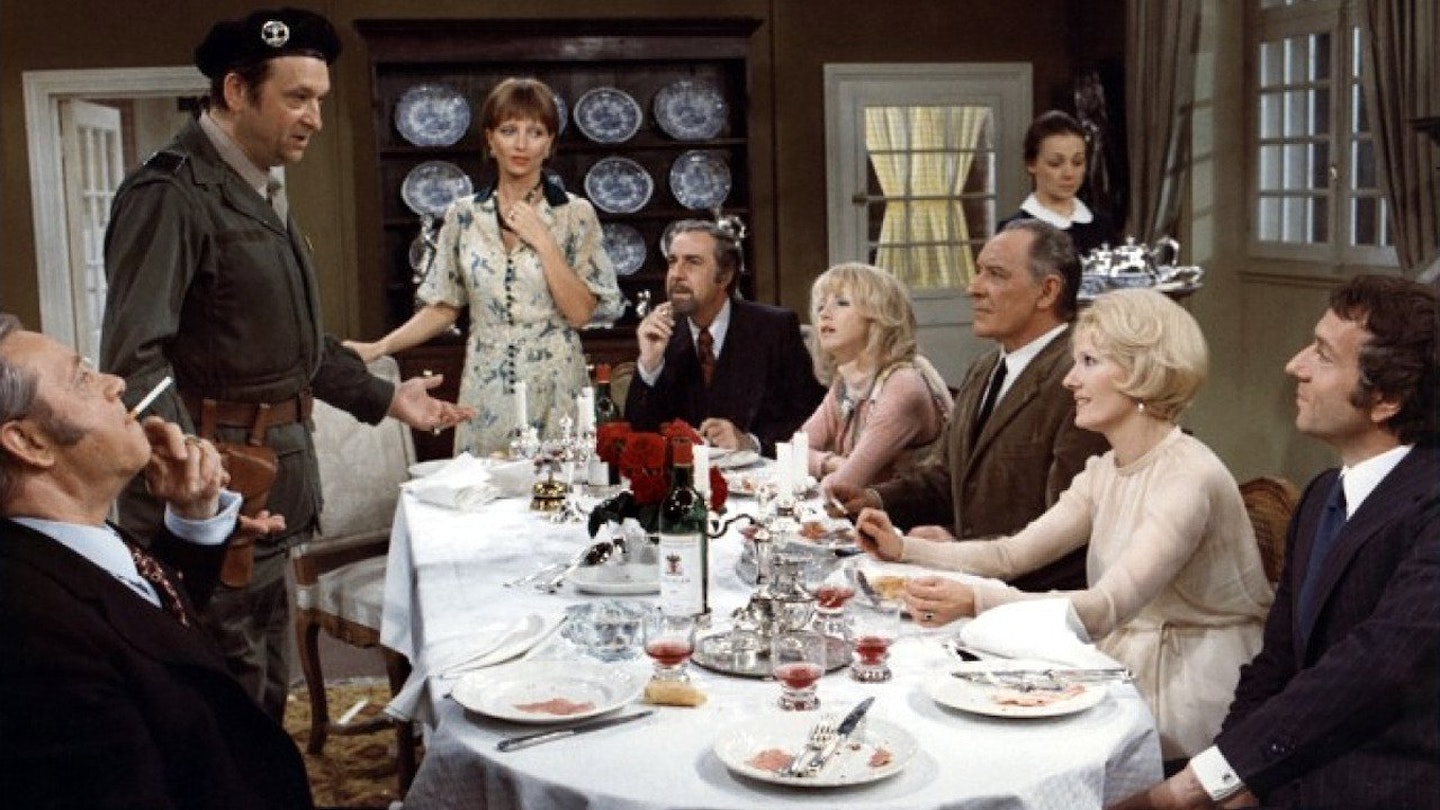Having declared that Belle de Jour (1967), The Milky Way (1969) and Tristana (1970) were all to be his final film, Luis Buñuel was inspired to produce this scathing satire by producer Serge Silberman's recollection of an occasion when guests arrived for a dinner party he'd forgotten he was hosting. It proved to be the 72 year-old's most artistically complete and commercially successful feature and earned him the Oscar for Best Foreign Film (although he was less than enamoured to be given an award by `2500 idiots').
The Discreet Charm of the Bourgeoisie is a L'Age d'Or for the ‘70s. The protagonists turn out to be neither discreet nor charming, with the ambassador being a fascistic drug dealer, Madame Thévenot an adulteress and the gardening bishop a murderer. Yet, Buñuel conceded that `I now say with humour what I used to say with violence', and while he mocked the characters on political, religious, sociological and psychological levels, the quality of his mercilessness is somewhat strained.
The searing ingenuity of his imagery, however, is undiminished. Directing via a prototype video link because of his sciatica, Buñuel replaced his customary close-ups and constricted camera movements with tracking shots and zooms. Yet, he edited largely in the camera and spent just over a day in the cutting room. This economy renders the complexity of the action all the more remarkable, as Buñuel plays games with planes of reality throughout and, such is their absurdity, that its impossible to distinguish between actual events, the dreams and anecdotes that punctuate them, and the scenes on the open road.
By forestalling the meal with increasingly sinister interruptions, Buñuel derides his directionless fools for their decadence, class consciousness, indolence and desperate attachment to a collapsing patriarchal order. Moreover, by keeping them on the move, this mordant masterpiece reveals just how little he cares about their ultimate destination.
